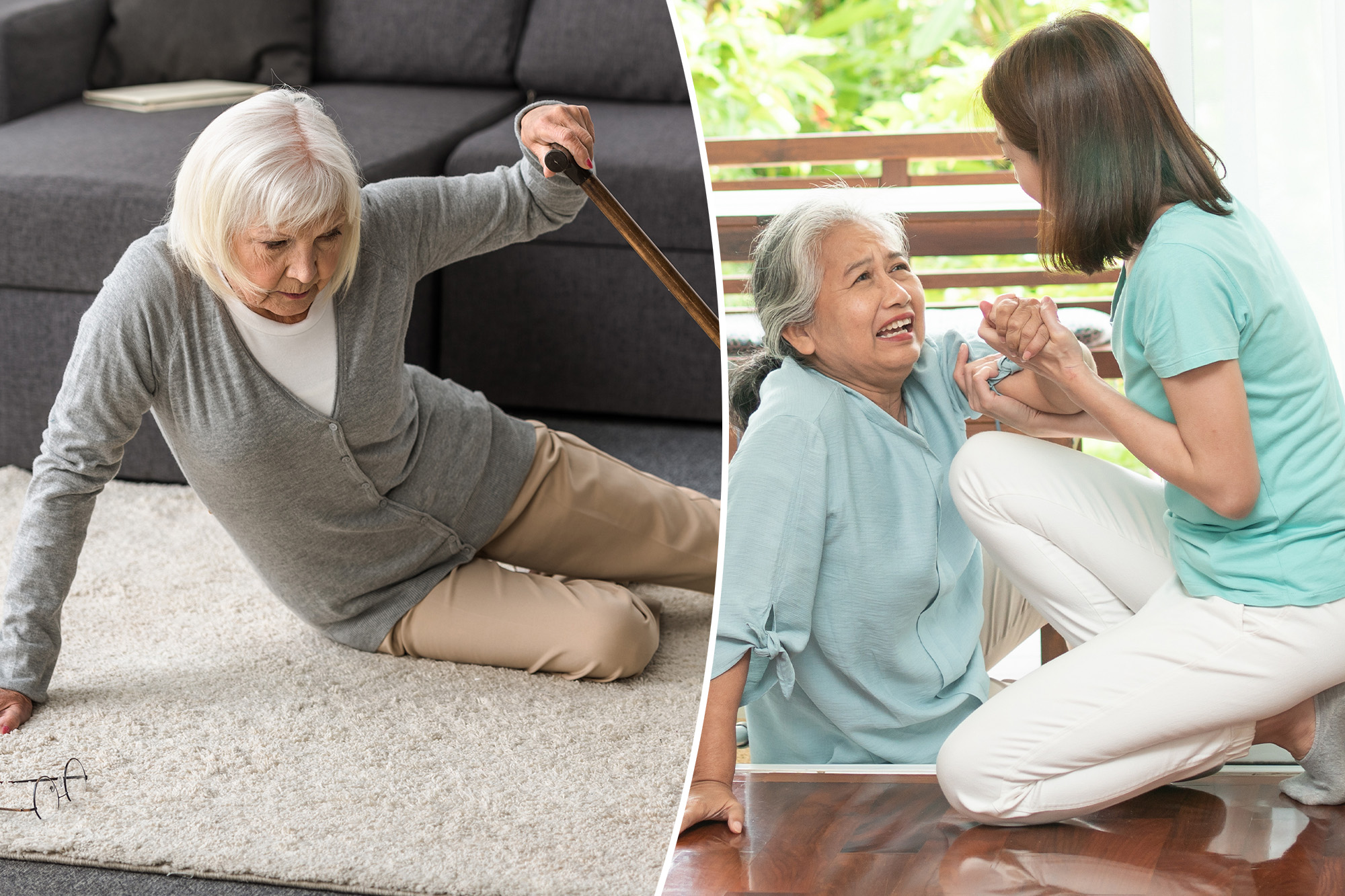It is critical that the seniors are strong on foot, as falls are the leading cause of injuries to major adults.
In the United States alone, almost a third of people over the age of 65 fall every year, causing injuries and sometimes death. Falls in the elderly cost $ 30 billion a year to treat and can send the elderly spiral to poor health and disability.
Now, Stanford University researchers may have found ways to identify people at risk of fatal falls or weakening years before reaching old age.
“Little equilibrium deficiencies can go unnoticed until someone really falls. So we wanted to ask us: Can we detect these deficiencies before someone hurts?” Jiaen Wu, lead author of the work, explained.
The Wu team set up 10 healthy volunteers between the ages of 24 and 31 with harnesses, which allowed nearly a dozen cameras to track the movement of various body parts as they walked on a rolling ribbon.
The team recorded the width between steps when walking, the difference in time of each step and the consistency in the placement of the foot.
Participants were then asked to walk while wearing ankle claws, a mask that blocks their eyes and destabilizing air planes, impediments that mimic the effects of aging on balance and reaction rate.
Armed with these inhibitory accessories, it was harder for participants to see their environment or maintain their balance, and researchers had more time to predict how wide or when the next step would be.
Comparing the first normal walk data with the shoots, researchers found that participants with the most variation in the width of the passage, time and falling of the foot in the first stage were more likely to fall to the second stage, which suggests that the way someone walks in their principle could determine the likelihood of experiencing a fall later in life.
The authors said that each of these three initial measures on foot was 86% precise to predict if someone would experience a fall in the second experiment.
“In this study, the normal walking data was informative in most cases,” Wu said.
The findings were Posted this week in the Journal of Experimental Biology.
Wu and the team hope that data like this can provide early warning to the elderly before reaching a high -risk age, potentially saving lives and curbing stress in the health care system.
Conventional efforts to prevent falls include exercises to increase strength and balance. Several studies have linked balance and stability to general health.
A made for the British Journal of Sports Medicine in 2022 found that the ability to perform a 10 -second position test and a power predicted the survival of people in the Middle Ages and more.
The 12 -year study topics were 51 to 75 years old. They had to try to stay on one foot for 10 seconds, with both hands on their sides.
Those who could not do it more health problems over time, including type 2 diabetes, heart disease, obesity and unhealthy cholesterol levels.
The most alarming of all, those who were unable to successfully balance for 10 seconds, were almost dubbed from dying in ten years.
China researchers drawn similar conclusions by 2023, and reported that the risk of death by any cause of middle -aged and older people increased with a lack of balance.
If you are concerned about the decrease in stability, experts suggest dynamic balance exercises such as climbing stairs, walking only with your heels or toes, and practicing yoga or dance.
You pass larger adults can do to reduce the risk of falling
- Exercise, including walking and stretching, can improve muscle strength and balance.
- Have a doctor review all medicines to check for side effects or medicine interactions that may cause dizziness or drowsiness.
- Get annual vision exams to ensure -your eyes are healthy and that glasses are the right force.
- Reduce the risks of falling home, leaving out disorder and poor lighting and installation of handrails in the vats and showers.
- Limit alcohol consumption, which can affect balance.
- Slowly putting -climbing too quickly can cause a sudden fall of blood pressure, causing dizziness.
- Use a stick or walker if needed for constancy.
#Scientists #discover #ways #predict #senior #prone #fall #advance
Image Source : nypost.com
